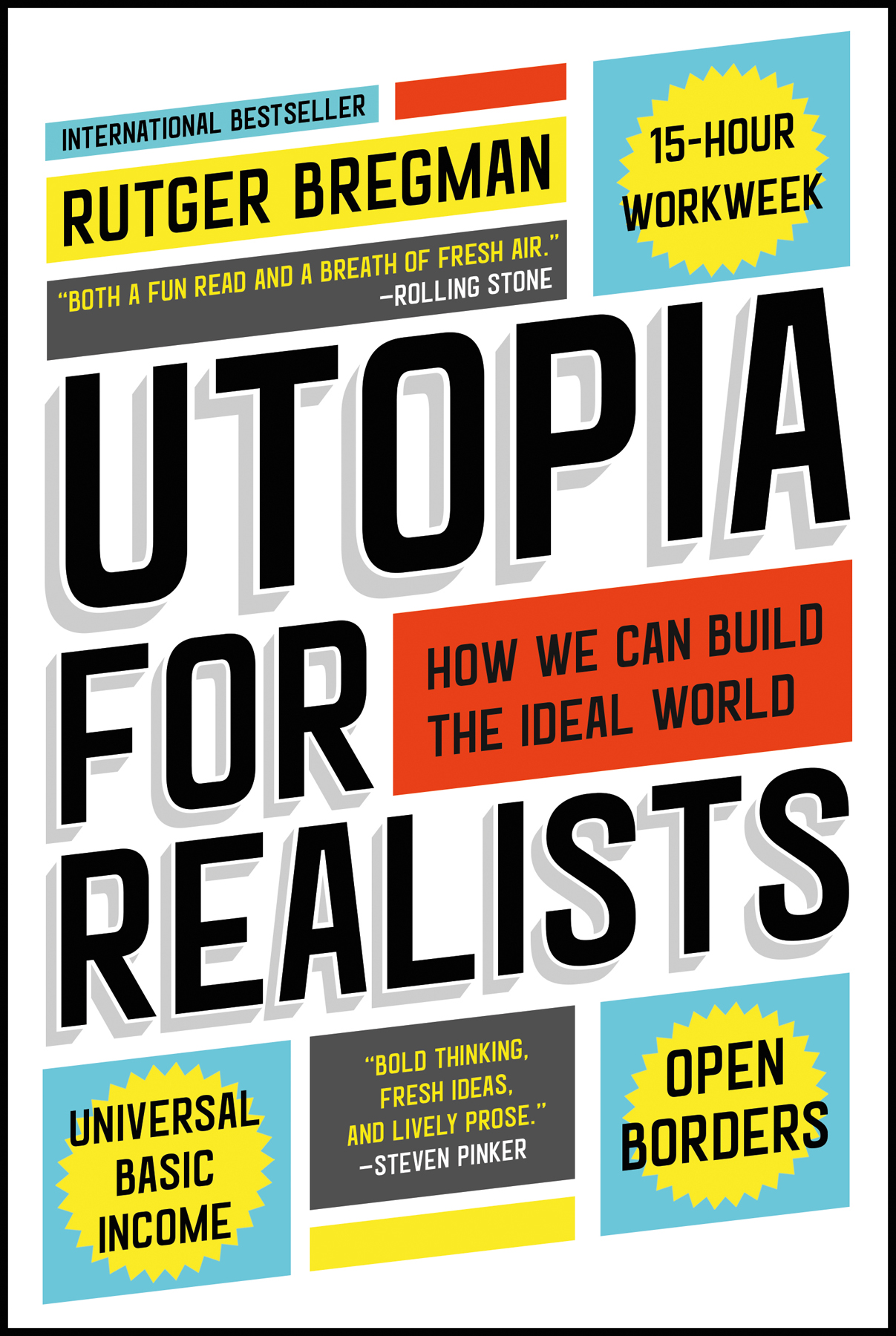Zelanator reviewed Utopia for realists by Rudger Bregman
Review of 'Utopia for realists' on 'Goodreads'
4 stars
I picked up Utopia for Realists after seeing a reference to Bregman's work in Johann Hari's book Lost Connections. Hari describes Bregman as a "leading expert" in economic policy and the universal basic income in Europe. However, this is obviously a stretch of Bregman's true credentials. He is a millennial with an abiding interest in economic justice whose primary professional occupation is being a journalist—not an academically trained economist.
On the whole, Bregman offers some food for thought about the possibilities inherent in creating a Universal Basic Income (hereafter, UBI) in the West. For those who are not familiar with UBI, it is the suggestion that to combat growing economic inequality and the rising tide of unemployment due to automation and AI, western governments need to provide people with direct cash payments (usually suggested to match the poverty line) so that they have guaranteed income.
Those on the right see UBI as a disincentive to work, welfare on steroids, and most likely the cause of general moral degeneration. But Bregman offers most of the liberal talking points that are couched in several prominent sociological and anthropological studies of UBI experiments in Canada, Europe, and in the United States—all of which suggested that providing people with UBI freed them up to pursue educational opportunities, kept children from going hungry and kept them in school longer, enriched the pursuit of art, and forced low-income wage work to incentivize pay and benefits to attract workers. I'm fairly convinced by most of these points, but I found Bregman's treatment of UBI very shallow. I'll have to dig deeper into other works for more information.
The other two portions of this book deal with the "15-hour workweek" and "open borders." The latter is laughably slapped together. If AI will make jobs scarce by the 2030s, creating a joblessness problem necessitating UBI in the United States, how does that square with "open borders" and mass immigration? He doesn't answer that apparent contradiction. Moreover, he says nothing about the real effects of "brain drain" from the developing world due to open borders which inhibits real progress in other countries. As many other scholars have noted, mass immigration to the West and Asia will not solve global poverty. These sections of the book (roughly 1/2) are intellectually lazy and unconvincing. I would look elsewhere for more on the merits of these policies.

